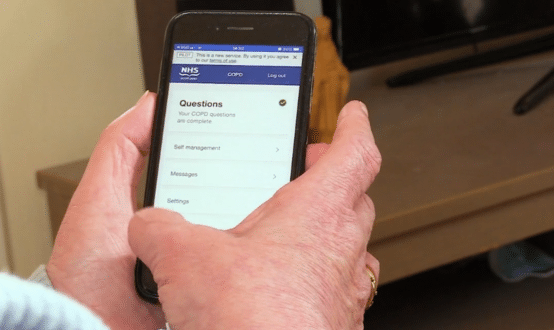Industry news in brief
- 31 January 2020

This month’s industry round up features news that NICE has endorsed a web tool for improved treatment of atrial fibrillation, while Imprivata has acquired GroundControl solutions, a leader in cloud-based automation software for provisioning shared mobile devices.
NICE endorses web tool to improve treatment for atrial fibrillation
The National Institute for Health and Care Excellence (NICE) has endorsed a tool for GPs to improve treatment of atrial fibrillation (AF).
The tool, developed by a West Midlands GP, is being rolled out to 4, 166 GP practices using EMIS web clinical system.
It’s the first NICE-endorsed AF decision support tool in the UK to work directly from within a patient’s medical record.
From the consultation screen, GPs can instantly view bespoke decision support to help assess, monitor and treat the condition, which is the most common heart rhythm disturbance. It’s estimated optimal treatment of AF could avert more than 14,000 strokes over three years, saving the NHS £241 million over that time.
The new tool, developed by EMIS Health, considers variables such as height, weight, age, serum creatinine, medical history and existing medication to help accurately calculate and monitor the correct doses of anticoagulant drugs to treat AF.
The project was led by Dr Boeckx , a GP at the Davenal House surgery in Bromsgrove. He said: “What the AF tool gives hard-pressed GPs is relevant information instantly from within the patient’s record. It makes it much easier, safer and quicker to get patients on the right dose of medication.
“While tools exist outside clinical IT systems to treat AF, their uptake has been low because they are too time consuming to be of practical use in the time-pressured GP setting. Integrating decision support within EMIS Web will I believe make relevant guidance instantly accessible and far more impactful.”
Medical products successfully processed via blockchain
Orders for medical products have successfully been processed via blockchain for the first time in Sweden.
The Cantonal Hospital Winterthur, the Cantonal Hospital Baden, the University Children’s Hospital Zurich and the Spitalregion Fürstenland Toggenburg together with the two medical device suppliers carried out orders on a trial basis, with Zurich start-up Xatena AG providing the necessary infrastructure.
The blockchain-based infrastructure allows hospitals to place medical device orders without transaction intermediaries or direct connection. It also allows the integration of all actors involved in the supply chain on a common basis of trust.
The infrastructure tested by the hospitals makes it possible to trace the route taken by a medical device, with steps in the supply chain stored in the blockchain in a way that cannot be altered.
With the new Medical Device Regulation (MDR), medical devices will always have to have a Unique Device Identification (UDI) number. This allows a medical device to be uniquely identified in the supply chain. Blockchain also makes it possible to track the transaction steps. Only together do the two factors make a traceable supply chain for each medical device possible.
Patrick Müller, Head of Procurement and Supply Chain Management, Cantonal Hospital of Winterthur, Switzerland, said: “We are part of the project because we believe that the blockchain technology enables traceability and the single-pane-of-glass view for all participants on a trusted basis.”
Forward Health rebrands to Pando Health
Healthcare communication tool Forward Health has rebranded to Pando Health following a new investor backing.
The company, which provides over 25,000 professionals in 200 NHS hospitals with secure and efficient tools to communicate around patient care, said the new name reflects the increasing scope of their activity.
Pando welcomed Skip Capital as an investor as part of a $5 million (£3.8m) raise for its next phase of growth. Skip Capital is a billion-dollar fund led by Kim Jackson and the co-founder and co-CEO of Atlassian, Scott Farquhar.
Skip Capital invests in technology enabled businesses who are solving global problems. Pando is the first European healthtech investment for the fund.
The funds will support a staff expansion and scale Pando’s reach outside of the UK. In Q1 2020, Pando Health will become available to healthcare teams throughout India, Canada, and Australia, with more markets to follow.
Single sign-on provider Imprivata acquires GroundControl
Single sign-on provider Imprivata has acquired GroundControl solutions, a leader in cloud-based automation software for provisioning shared mobile devices.
The acquisition is aimed at improving the proliferation of digital identity authorisation and access management solutions and services for mobile devices in healthcare.
It will accelerate the development of new capabilities on fleets of enterprise mobile devices for large and small enterprises.
GroundControl helps regulated industries enhance their current mobile device management to maintain the highest standards for provisioning, asset management, privacy, and security. The solutions have been used to support more than a million devices at global corporations, including hospitals, retail outlets, and airports, across 82 countries worldwide.
“We are excited about the quality of people, solutions, services, and customer base this acquisition brings to Imprivata,” said Gus Malezis, president and CEO of Imprivata.
“As we continue to expand our mobile device offerings, GroundControl will be a central component of Imprivata’s go-forward mobile strategy.”
Aaron Freimark, CEO of GroundControl, added: “Due to the positive impact on productivity, cost, and security, the use of shared mobile devices has significantly increased, especially in healthcare.
“By combining forces with Imprivata, we can tap into industry-leading capabilities and resources to provide a powerful and complete identity lifecycle solution for customers around the world.”
More from Imprivata…
The company has announced the availability of OneSign 7.0 with Imprivata Web single sign-on (SSO) to enable fast, secure access to cloud applications from any device, anywhere.
The new Web SSO capability is an integrated component of Imprivata OneSign 7.0, the newest version of healthcare’s leading authentication and access management solution.
Malezis added: “Healthcare is becoming a hybrid environment. The continuing adoption of cloud applications in conjunction with on-premise applications and systems is trending healthcare infrastructures towards a hybrid state.
“That shift coupled with the increasingly distributed workforce continues to contribute to the erosion of the once well-defined IT security perimeter. To support the adoption of cloud technology without disrupting user experience or the delivery of patient care, we continue to evolve our solutions to deliver secure, frictionless access to all applications, regardless of whether they are on-prem or in the cloud.”
Imprivata Web SSO integrates seamlessly with Imprivata OneSign badge-tap access to provide near password-less authentication into corporate devices, including shared workstations. For organisations using Microsoft Windows 10, Imprivata Web SSO enables increased clinician engagement with cloud applications from the Microsoft Azure Marketplace.




